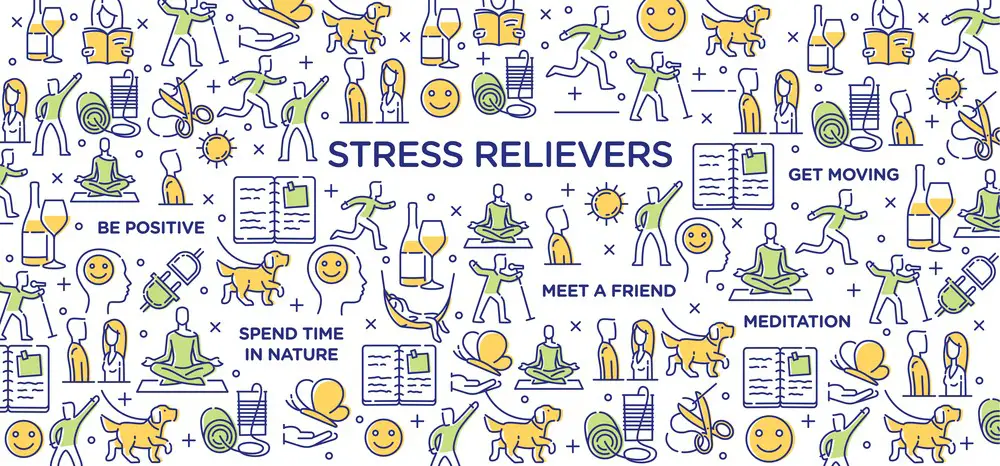Reviewing the week’s events, planning for the future, and contemplating how to do things differently can cause daily stress. In addition, some individual events or problems can lead to chronic stress levels that result in physical and emotional issues such as heart disease, anxiety, or depression. You may also experience high levels of stress when there are high-stakes situations in your life, like significant changes at work or a relationship breakup.
Research suggests that high-stress conditions can increase your risk of developing health problems such as cardiac disease and diabetes. But recent evidence from randomized controlled trials has shown that exercise reduces stress symptoms.
1. Exercise increases the production of neurotransmitters in the brain and releases endorphins – two substances that reduce mental distress and boost mood. In addition, exercise helps reduce the stress hormone cortisol, leading to fat gain and a host of physical problems. Cortisol is also secreted during high-stress situations. Exercise is so effective at creating a feeling of well-being that many people who suffer from anxiety or depression turn to it to find relief from their symptoms.
2. Exercise helps boost memory, which reduces the frequency of worry because those memories are more easily recalled. For example, a study published in Psychological Science found that participants who walked for one hour three times per week for six weeks had improved working memory. The positive effects lasted even six months after they stopped exercising regularly.
3. Exercise helps people focus on the present, not worrying about the future or dwelling on past problems. You feel good and less worried or anxious about anything else. You can’t worry if you’re unable to breathe because your heart is pumping so fast. The present moment is all that exists, and it’s an excellent way to experience life.
4. Exercise helps people to experience greater empathy. If you’re exercising, you’re feeling good and not worrying about your problems. Once you’re doing the exercise, you can put down the phone and switch off your computer and change your posture. When you can switch off your thinking mind and help others, it makes a difference.
5. Exercise helps one sleep better and, therefore, at night, worry less. A lack of sleep is a predator of anxiety and depression. Getting a good night’s sleep can reduce stress by managing distractions. Distractions are the number one cause of procrastination for many people, and stress can be a significant distraction in their lives. In addition, enough sleep allows you to think more clearly the next day to reduce your risk of heart disease or certain forms of cancer.
Exercise helps with stress management emotionally, physically, and mentally. This, in turn, spills over to those around you, creating a positive environment. Collectively, all these make it easier to deal with everyday problems.
- The Burnout Epidemic: Why We’re All Feeling Overwhelmed and How to Cope - February 9, 2024
- How to Live a Peaceful Life - February 9, 2024
- Useful Information You Should Know About Health Screenings - February 8, 2024
This site contains affiliate links to products. We will receive a commission for purchases made through these links.



